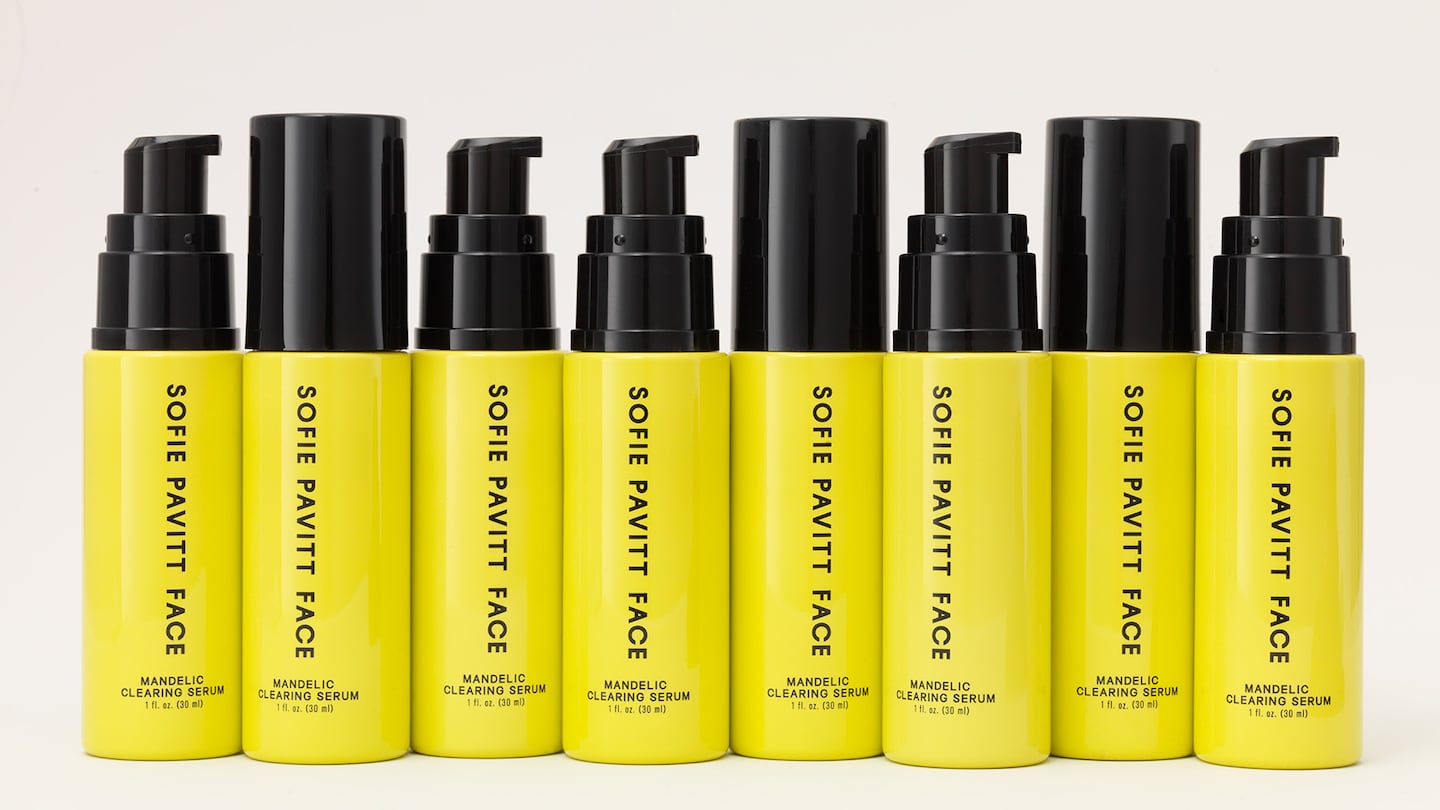
The Business of Fashion
Agenda-setting intelligence, analysis and advice for the global fashion community.

Agenda-setting intelligence, analysis and advice for the global fashion community.

In March, a bright yellow bottle of serum was taking over my Instagram feed. Beauty editors, influencers and even non-industry Instagram users were posting about a $54 Mandelic Clearing Serum designed for acne-prone skin, the first product from New York City-based esthetician Sofie Pavitt.
Pavitt, who counts Zendaya, Lorde and model Paloma Elsesser as clients, launched Sofie Pavitt Face six years after opening her first studio on Canal Street (her current space is on Grand Street in Chinatown). Pavitt will introduce nine more products over the next 18 months; currently, the serum is sold on her website.
A month earlier, Joanna Czech – probably the highest-profile celebrity esthetician of the moment – hosted a star-studded event to celebrate the opening of her New York City flagship studio in SoHo. In addition to facials, Czech will sell her super-premium skincare line, which launched in 2021 and includes a $340 vitamin C serum. Czech’s been linked to Kim Kardashian and Jennifer Aniston. Then there’s Iván Pol (Jennifer Lopez is reportedly a client), a facialist who recently launched the Secret Sauce under his The Beauty Sandwich label. The $300 “sauce” is made with a ton of different oils, including rosehip, rice bran and prickly pear, and has been promoted by Lauren Santo Domingo.
Like dermatologists, an increasing number of estheticians are bottling their expertise and using A-list clientele and ample social media followings to drum up buzz. Facialists are the true skincare experts who work on our faces day in and day out, treating various skin issues and suggesting products.
ADVERTISEMENT
There are a number of facialists with their own lines: Kate Somerville, Joanna Vargas (not to be confused with Czech), Sarah Chapman, Renée Rouleau, Tracie Martyn, Bianca Estelle, Shani Darden, Georgia Louise, Kerry Benjamin, Tammy Fender, Biba de Sousa, Angela Caglia, Jasmina Vico and more.
Except most people have never heard of their brands, with a few exceptions: Darden, a celebrity esthetician who works out of her Beverly Hills studio, turned the custom formulas she would make for clients into a skin care brand in 2018. Her Retinol Reform serum, which has become somewhat of a cult product, sells for $88. Sephora started selling the line in 2020. Somerville, who sold her brand to Unilever, and to a lesser extent Vargas, has name recognition as well.
Why is it so difficult for these experts to scale and build meaningful brand equity in this category?
For me, estheticians are to skincare what makeup artists are to makeup — and they have a unique advantage when entering a market saturated with skincare lines. Their clients act as a long-term focus group; facialists know the most common skin concerns, what people want and have certainly used (and recommended) enough brands and products to discern what they do and don’t like.
Estheticians, unlike celebrities who are better known for roles in TV and film than making serums, rarely need to convince people of their credibility. This came in handy early on, as much of the wave of social media influence was built on expertise or authority. But a lot has changed in just a few years: the internet is flooded with “experts,” and it’s easier than ever to create high-quality products. I’d argue that it’s the easiest part of starting a company today.
“Brand” has never been an organising principle in skincare. Selling skincare has always come down to either efficacy and luxury or efficacy and value, and messaging has been mostly fear-based and problem solution oriented. Most believe that if they make a better serum (or are perceived to make a better serum), then they’ll win. Everyone resorts to the same “my product is better” messaging.
It’s why founders — dermatologists, estheticians and others — still struggle to build a true brand universe and get consumers to buy into that universe. They’re all running the same playbook, and what we’re left with is a bunch of equally qualified celebrity estheticians all selling high-quality skincare. Buying a serum because it’s created by Aniston’s, Zendaya’s or J.Lo’s facialist may be enough to elicit an initial purchase; it’s not enough to create a strong “brand” that can scale beyond regional clientele or in-the-know beauty enthusiasts.
Instead of relying on celebrity affiliations or giving the best facials (all of the above are comparable in terms of expertise), founders must create a world that customers find reflective of who they are or who they want to be. It also helps to have a clear focus or point of differentiation.
ADVERTISEMENT
People want to feel like they’re part of something. Glossier didn’t get to where it is by selling the best blush in the world; Emily Weiss built a brand that people so badly want to be a part of that they’ll wait in line to buy products IRL so they can get a pink “Glossier” shopping bag to tote around. Rare Beauty’s makeup isn’t the most innovative – the draw is Selena Gomez and the connection she’s forged with fans.
Skincare is still chasing ingredient stories and trends, with estheticians and dermatologists trying to out-efficacy one another. Who is going to tell them that trends are fleeting and most skincare works?
 Opens in new window
Opens in new windowExcitement for its IPO is building, but in order to realise its ambitions, more acquisitions and operational expenses might be required.
In an increasingly crowded space, makeup brands that prioritise natural ingredients are finding new ways to get their message across.
Shana Randhava, Priya Venkatesh, Heela Yang and Robin Tsai will join Imran Amed and Priya Rao to identify the entrepreneurs shaping the future of the beauty industry.
By selling existing formulas under their own name, retailers can tap into the lucrative beauty market without investing in custom formulations. But that doesn’t mean the private label model is an easy win.